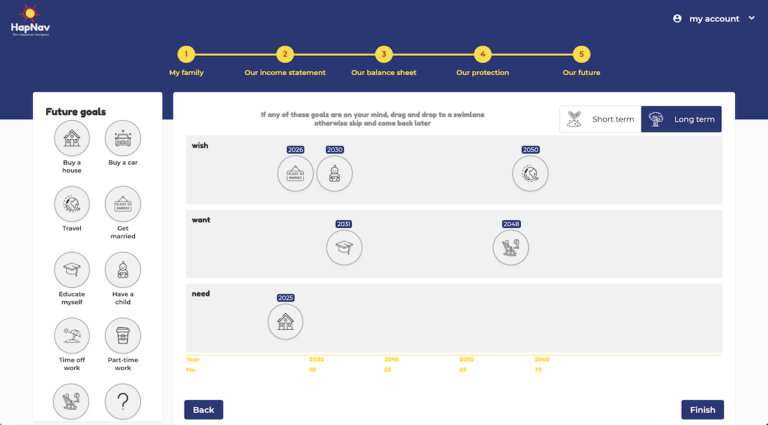At the start of this month, the Financial Conduct Authority published a call for input to help it evaluate the progress of both the Retail Distribution Review (RDR) and the Financial Advice Market Review (FAMR). Advisers, fund houses, platforms and providers will all be well aware of the impact of these two initiatives.
The RDR shook up business models and saw some advisers exit the industry while the FAMR, with which we engaged extensively, sought to narrow the advice gap, coming up with some tweaks to wordings of definitions, talking up the ‘regulatory sandbox’ and creating some ‘baseline market indicators’.
The FCA asked for input by this Monday (3 June) yet the language used – and even the tight timetable – suggest an administrative exercise rather than an invitation to discuss what a radical solution could look like. We are also concerned that any review may fail fully to understand the context in terms of consumer access to advice.
If you go back to the 1980s and 1990s for your baseline, the decline in adviser numbers has been precipitous so arguably it has not all been about the RDR but the result of longer-term trends as well. No-one would make a defence of many of these old practices and remuneration methods yet, examined this way, the advice gap is – and continues to be – a yawning one.
Thus the FAMR, while tidying up a few things up and offering adviser firms a bit more certainty, missed an opportunity to address a very significant market and public policy challenge. Indeed, if we are to increase savings and investing by the British public, we need to get serious about resolving this issue.
In our view, it needs a radical reappraisal of advice. We are not advocating huge disruption to the existing adviser community, but a new approach that could provide a huge boost to wider provision by enabling big financial institutions to reappraise their whole approach to advice.
Much has been made of the use of artificial intelligence to power digital advice by asking questions, determining risk and then recommending one of a set number of portfolios. Frankly, we see this as a compliance journey and not an advice delivery mechanism. Indeed, unless you actually tell a client that ‘this is advice’, few would ever identify it as such.
There is an urgent need to reframe advice in the context of clients’ perceptions. Advice is something you might expect from thorough conversations with your parents about life, or when talking with teachers about which college or university to attend. It bears little resemblance to the mechanistic ‘which do we recommend: investment portfolio 1, 2 or 3?’ approach.
We would prefer to see a drive towards holistic advice. It could be purely digital or digital/human hybrid – but at its core it has to be both holistic and realistic. We also think the way the FCA conceives and construes advice is part of the problem.
Currently most advice journeys start with a factfind, then an ‘attitude to risk’ assessment or risk-profiling journey and then, at the end, you crank a handle and you get something called advice. That user journey is not fit for purpose.
That prompts the question: Is there a way to comply with FCA regulations without following that sequence? Could you disrupt that sequence effectively, and create a more engaging customer experience, while complying with current regulations?
Part of the answer rests with the definition and perceptions of the word ‘risk’ – for example, nowhere in the regulations does the FCA define ‘risk’ as portfolio ups and downs or investment gains and losses. Previous drafters of the regulations wanted, we believe, to leave enough ambiguity for market participants to apply their own interpretation of ‘risk’. Admittedly, it has been clouded subsequently by the reaction of the market to the ‘capacity for loss’ requirement – something quite a few advisers continue to query.
Surely we need to be defining the word ‘risk’ in more human terms – for example, the risk of not achieving something personally important in the future, the risk of running out of money during retirement or the risk of not being able to have a desired lifestyle. As such, we should be addressing risk in terms of life outcomes, rather than investment outcomes.
A very different approach
This could start to drive a very different approach to advice, and perhaps a different definition of advice – one that is much more human centric. We would not be saying: “I’m giving you advice to help you figure out which portfolio to choose.” That after all is a very small part of the equation. Instead we might say: “I’m giving you advice to help you figure out how best to position yourself so you can achieve your desired future outcomes.”
Just looking at retirement, there is an almost utopian – yet extremely – flawed concept of how retirement works: that one day we are working, and the next day we retire and, on that day, we have some kind of mythical pot we then draw from for all future needs.
The reality, of course, is people are being flexible and transitioning into retirement over a decade or more. Some may choose not to retire. Yet we have focused most of our attention on a very tiny part of the overall resources available to see retirees through retirement – their pension pot.
We know that established advisers often follow a rigorous approach and they will use some of these techniques and systems – but they also have deep client relationships and use their experience to ensure the advice is holistic, including looking at total wealth and the full range of retirement and phased retirement options.
Indeed, the FCA does not approve financial planning methodologies. That is not the business they are in. They simply say that, if you are going to give a personal recommendation, make sure you have done all these things.
We have been conditioned to think of attitude to risk and capacity for loss as a click-through questionnaire – one that, in most cases, includes a bunch of questions that nobody understands or can answer reliably.
So, when it comes to discussing the RDR and the FAMR, the FCA review should consider breaking down the idea of advice, the client and customer perception of advice, and the current over-mechanised approach that evidence shows is not resonating with customers and clients.
We need to convince more of the population to build up assets as a major public policy goal and we need to involve the platforms, providers and banks. That is not particularly in conflict with the current advice sector – which by its nature mostly serves an older, wealthier segment of the market. Yet we would ask whether the advice sector alone can continue to help people across the population build a sufficient amount of assets for their needs.
It would be a really significant move if the regulator used this review to adopt a more open approach to advice in a way that clients/customers can really understand. If not, the big financial services firms should challenge themselves, change their approach within the current rules and, instead of ‘portfolio one, two or three’, start providing holistic advice.


